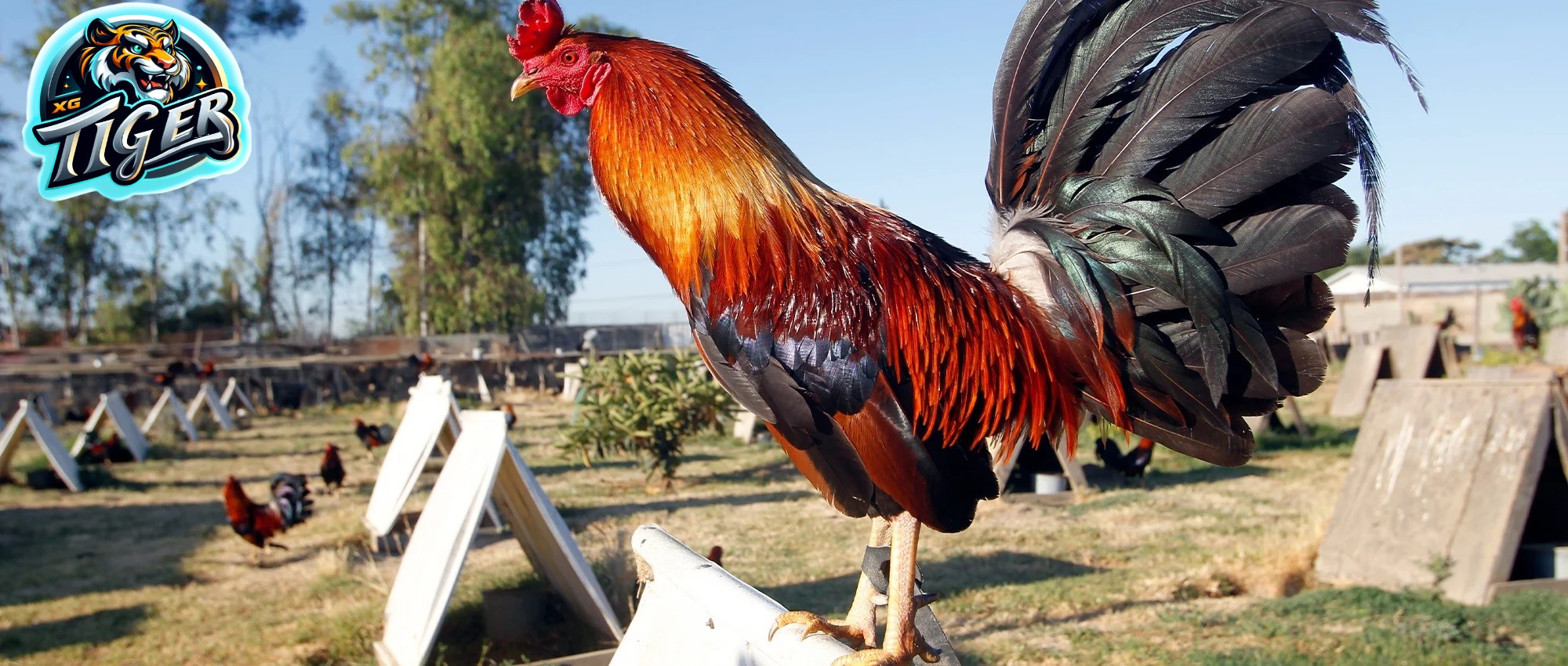Table of Contents

Participating in Xgtiger Casino cockfights as a cockerel is more than taking a game chicken and entering it into a fight. Think of it this way, just because you know how to punch doesn’t mean you should jump right into a boxing match without any adequate training and preparation.
Like athletes, fighting roosters also need to undergo training and conditioning to be ready for their fights. The training and conditioning phase allows your roosters to become stronger and smarter, reaching their full potential. If you want to have a winning rooster in your hand, the conditioning process is one you should not skip. Here are tips, tricks, and techniques on how to condition a fighting rooster.
How to Condition Profits
Conditioning is part of the game fowl rearing process and it starts from chick to fight day. This step ensures that the fighting cock grows up healthy and strong. Healthy roosters have a huge advantage in winning the pit over sick chicken fights.
Cockfighters and handlers have different ways of conditioning their fighting roosters, but they all have one main goal: to put the rooster in its best possible shape and prepare it psychologically for the day of battle.
FOOD
The first important part of conditioning roosters is the feeding aspect. A chicken will not be healthy if its handler does not feed it a properly balanced diet. Feeds are a primary source of energy and nutrition, which greatly contribute to a fighting cock’s performance.
INGREDIENTS
The ingredients of a feed can vary greatly depending on the handler, breed of bird, and locality but most include corn, wheat, oat groats, jockey oats, and mixed grains. Chickens eat grains because grains are the type of food that birds eat more naturally. They are also economical for feeding chickens.
Corn contains the highest energy and is the best food for carloading chickens but too much of it can make them fat. Wheat is the key to building chest muscle and is best served fermented but soaked ones also work. Dehulled oat grains make it easy for chickens to digest. Jockey oats are high-fiber grains, while mixed grains can consist of peas, barley, sunflower seeds, and more.
The inclusion of mixed grains in the feed can provide the fighting bird with an adequate source of various nutrients, especially minerals. There are also some who include bone meal and fish meal in their feed in the mixing bowl for the first ten days.
For many handlers, the main feed a chicken receives in the three to four weeks before a fight should be slightly different from the feed it is used to. Any drastic change from the normal diet cannot increase the bird’s strength, and a completely new feed formula can damage the rooster’s digestive system. Instead of making the cock stronger, it may have less strength than before.
PROCESSING
The way the feed is processed is also important because it is how resistant birds can effectively absorb the vitamins and nutrients from their food. Some mix dry feed and store it in a barrel, then mix with wet grain just before feeding. Some handlers completely soak all feed grains to remove toxins.
Others ferment the feed because it can make the fibers more digestible for the birds. There are also feed growers, but this method is best for feeding chicks and non-immune birds. Cooking is another method but it is usually the last method of feeding chickens when other methods are not available. If beef and eggs are included in the feed mixture, they must be cooked. Beef should be cooked rare while eggs should be hard-boiled.
Water is an important part of the diet to hydrate chickens. Plain fresh water is preferred, but some handlers give them toast water or barley water. Make sure that there is always clean water within reach of the chickens.
SUPPLEMENTS
Besides feeding the fighting birds a special diet, supplements are also added to the feed to make up for any nutritional deficiencies. Gamefowl are very healthy animals but supplements can help reduce any health problems and help improve chicken performance.
There are general purpose supplements, but there are also some developed for specific purposes. Some handlers give their chickens various drugs to strengthen but this can do more harm than good.
Vitamins and minerals are the best supplements to give as they ensure that a chicken is in good health. B complex vitamins can help with blood conditioning and oxygen circulation. Phosphorus and magnesium help build energy, while amino acids help build muscles and tissue.
Many handlers also feed their gamefowl with crude protein to repair muscle and increase their strength. More sophisticated fanciers increase the strength of their chickens by using the amino acid composition of their diet and supplements. This is because even if crude protein is included in the diet, it may still lack the amino acids needed to build muscles.
VALUE
The amount of feeding is important to ensure that the chicken is at just the right weight and not over or under. Usually, handlers feed resistant birds around 40g to 45g of feed with supplements but of course, this measurement can be adjusted accordingly.
Fighting birds that have not undergone the pre-conditioning process can be given 30 to 60 grams of feed according to their needs. Deficient ones can be given a feed of 50 to 60 grams with additional protein supplements. In hot weather, the measurements can be changed accordingly to meet the needs of the rooster.
FEEDING SCHEDULE
Establishing a feeding schedule is also important because it helps prevent overeating that can cause health problems. Try to stick to a regular feeding schedule as much as possible.
For most keepers, the best time to feed a game cock is in the morning before they start their day. This way, the birds will have time to digest their food and get all the vitamins and minerals they need to power through the day. If they can’t be fed in the morning, the next best time to give them their feeds is in the evening, before bed.
There are also handlers who prefer not to feed the chickens at night. This is so that the next morning, the chickens should be empty and hungry, and therefore you can establish a morning feeding program for them.
FOWL DROPPINGS
During the conditioning phase, remember the chicken droppings every day. They should be firm but soft, not hard, and not dried out but not watery either. Feces are a definite sign of the chicken’s condition and its ability to assimilate its food. If his stools are not correct, you will need to adjust the mixture and amount of his food.
Exercising
Just as it is for humans, exercise is important for fighting birds as well as to keep them active. Various exercises can keep the game cock in top physical condition and can also help stimulate the mind. In older birds, exercise can even improve their cognitive function.
Some exercises you can do with your battle cock include tug of war or chasing games. Changing the exercise routine is necessary to keep the fighting cock from getting bored.
Conditioning And Training Schedule Of Gains
A consistent schedule will help you and your rooster get used to the entire conditioning and training process. Additionally, if you stick to a schedule, you can see the results of your hard work and also know which areas you need to improve on before match day. Check out this sample schedule you can use to train your rooster:
6:00 AM
All roosters are in their cages. Training inside the pen can begin with the “catch cock” method.
7:00 AM
For feeding time, the roosters are fed a balanced diet of 50% conditioning pellets, 50% grain, as well as vitamins and iron.
10:00 AM
Chickens are moved to flying pens to help them build strength and power in their wings.
2:00 PM
The gamefowl were moved to the grass pen so they could rest.
4:00 PM
From the grass pen, the chickens are transferred to their respective cages and the catching work continues.
5:00 PM
Afternoon feeding time. Chickens are given the same amount of feed that they were fed in the morning.
9:00 PM
The chickens are brought one by one to the sparring pit for light and sound familiarization and sparring. After the spar session, the chickens are returned to their pens to rest and be ready for exercise again the next morning.
Conclusion
Are you an avid gaming fan and want to know how to bet on online casino games? At Xgtiger, you’ll get the latest information on this year’s best casino games and a variety of gaming options, all in one place.
To start your online gambling journey, all you need to do is create an account on the site, deposit funds and you’ll be ready to bet on the best and most anticipated casino games.
Frequently asked questions
There are several tasks involved in preparing a cock for fighting. If the rooster has never been fought, its comb and wattles must be “dubbed” (see photograph). The cock’s natural spurs, which may be several inches long, are also removed with a “spur saw,” a modified hack saw.



